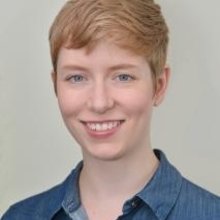Woods Seminar | Water Supply Infrastructure Planning: Learning and Adapting for an Uncertain Future | Sarah Fletcher, MIT
Event Details:
Location
Y2E2 Room 299
United States

Abstract:
Water planners and policymakers must account for uncertainty in future supply and demand to ensure reliable water access. The large magnitude of uncertainties due to climate change and urbanization, however, can make it infeasible to invest upfront in infrastructure that is sufficient prepare for the full range of possible futures. This seminar assesses the potential to design flexible, adaptive infrastructure that responds over time to new information by combining new data sources with advanced analytics. Specifically, I develop a planning framework that combines Bayesian statistical modeling of climate change with a multi-stage stochastic optimization model to explicitly account for opportunities to learn in the future and inform decision-making today. I demonstrate this framework on a dam project in Kenya. The results show that a high potential to reduce uncertainty over time enables a flexible dam design to maintain reliability at reduced cost. The value of flexibility depends on the social discount rate, technology choice, and the value society places on water reliability. This approach shows promise in enabling more efficient and equitable climate change adaptation policy by targeting large-scale infrastructure investments where needed while identifying opportunities to rely on smaller, incremental approaches. I also introduce applications in groundwater and drought management in Riyadh, Saudi Arabia and Melbourne, Australia respectively to demonstrate the generalizability of the framework.
Bio:
Sarah Fletcher is a Postdoctoral Associate at MIT's Department of Civil and Environmental Engineering. Her research takes an interdisciplinary approach to decision-making under uncertainty in water and food systems, integrating hydrological and climate models with data science and policy analysis. She is currently using remote sensing analysis to assess the vulnerability of food systems in sub-Saharan Africa and guide climate change adaptation. Previously, Sarah worked as an industry researcher and consultant on issues at the intersection of water, energy, and environment and led the development of the first online marketplace for water and wastewater for energy companies at the startup Sourcewater. Sarah has a PhD in Engineering Systems from MIT, an SM in Technology and Policy from MIT, and a BA in Physics and Economics from the University of Pennsylvania.
